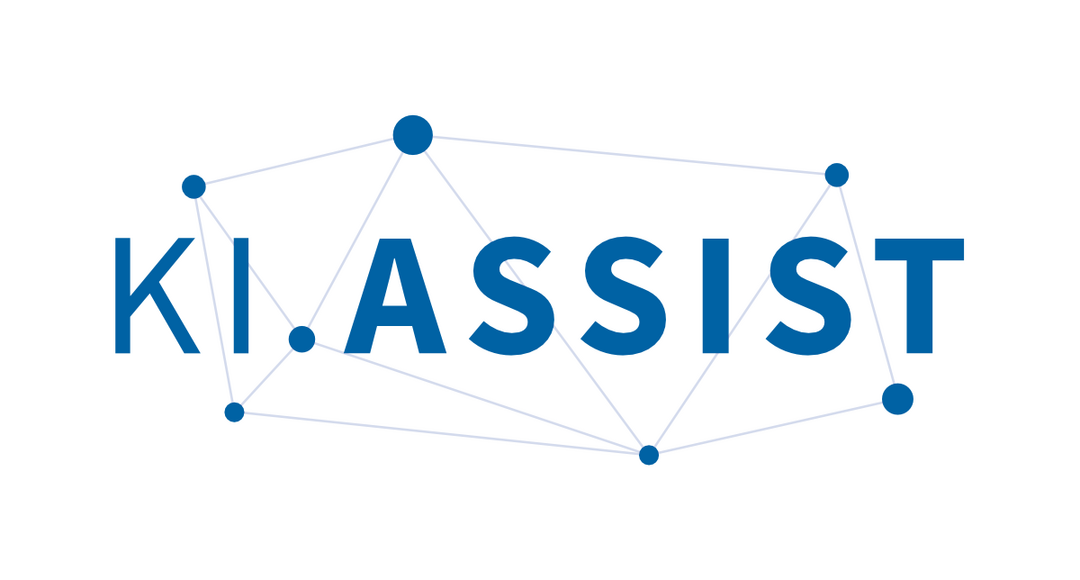"With the practice-oriented research project KI.ASSIST, we are creating a good basis via a systematic, scientifically sound and people-centered approach, on which we can further advance the development and application of AI technologies to support people with (severe) disabilities in learning and working," says Susan Beudt, KI.ASSIST project manager at the Educational Technology Lab at DFKI Berlin.
The new, low-barrier website of the project is now available. In addition, the working group "Ethics, AI & People with Disabilities", headed by DFKI, has started its work.
Newly designed project website
The redesigned, low-barrier website of the KI.ASSIST project offers detailed information about the project with the internal area itself as well as possibilities for networking of different actors involved in the project. In the "My Story" section, people with disabilities, trainers and professionals in vocational rehabilitation facilities have their say, sharing their experiences with assistance systems. The website is updated at regular intervals and is intended to provide ongoing insights into the learning and experimental spaces and to inform about new findings in the research project. The newly designed website is also intended to provide various target groups with information on possible AI-based assistance technologies and thus support the development, introduction and use of artificial intelligence for people with disabilities.
The new project website is now available at https://www.ki-assist.de.
Working Group "Ethics, AI & People with Disabilities"
The KI-ASSIST project also investigates ethical issues, including the opportunities, risks and limitations of artificial intelligence for people with disabilities. The working group "Ethics, AI & People with Disabilities" led by the Educational Technology Lab (EdTec Lab) at DFKI Berlin unites the knowledge of actors from the fields of inclusion or vocational rehabilitation, ethics and artificial intelligence. DFKI works together with the project partner Bundesarbeitsgemeinschaft Werkstätten für behinderte Menschen e.V. (BAG WfbM).
Based on practical experience in the learning and experimental rooms, concrete recommendations on the topics of digital ethics and digital responsibility will be developed. In doing so, existing work and current discourses are to be linked to existing work and expanded to include the perspective of people with disabilities.
The working group started on November 9, 2020 with a digital kick-off meeting and will work on the above-mentioned issues via digital dialog formats. As a result, a white paper will be produced that will provide information on ethical issues, opportunities and risks, and guidelines for AI for people with disabilities.
KI.ASSIST: DFKI work focuses on monitoring, exploration, transformation and data sovereignty
The researchers of the EdTec Labs at DFKI Berlin are responsible for the clusters and work packages Monitoring, Transformation and Data Sovereignty within the KI.ASSIST project. In addition, the team of the EdTec Labs is significantly involved in the preparation, implementation and evaluation of the learning and experimental rooms in the Exploration cluster.
The monitoring includes the systematic search and collection of technologies with AI components to support work and training and the validation of selected technologies. In addition, the technology foresight considers future developments and application scenarios of AI technologies in vocational rehabilitation.
In the Exploration cluster, AI-based assistance technologies are brought to selected vocational rehabilitation facilities and companies. At ten locations throughout Germany, people with disabilities and skilled workers test AI-based technologies in so-called learning and experiment rooms. The aim is to investigate how AI-based technologies can support people with disabilities in educational and work processes and in their participation in working life.
The team of the Educational Technology Labs examines possible technologies for the learning and experimenting rooms according to different criteria and builds up cooperations with companies and research projects. In addition, the team is responsible for the coordination of the accompanying external evaluation of the learning and experiment rooms and ensures their knowledge transfer to the project consortium. Results can thus be incorporated into recommendations for action, which are made available to vocational rehabilitation facilities and to an interested professional audience.
The transformation cluster explores the question of how to design change processes in a way that enables people with disabilities to benefit from AI-based assistance systems in vocational rehabilitation and at work. The goal is to develop a model for transformation processes and, based on this model, recommendations for the development, introduction and long-term use of AI-based assistance systems for people with disabilities beyond the KI.ASSIST project.
The work package "Data Sovereignty" investigates how to empower people with various limitations in dealing with the topic of Big Data and AI from a data security perspective.
About the KI.ASSIST project
The project consortium consists of the Federal Association of German Vocational Training Institutions (BV BFW) as the applicant for the Vocational Rehabilitation Network (NbR) and the project coordinator, the Federal Association of Vocational Training Institutions (BAG BBW), the Federal Association of Workshops for Disabled People e.V. (BAG WfbM) and the German Research Center for Artificial Intelligence (DFKI). The German Federal Ministry of Labor and Social Affairs (BMAS) supports KI.ASSIST with funds from the compensation fund.
Further information is available at https://www.ki-assist.de.

